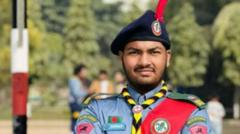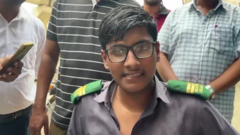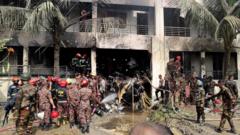As Ramadan unfolds in Dhaka, iftar gatherings become a significant platform for Bangladesh's political parties to forge alliances in the aftermath of recent regime change, providing crucial insights into the future political landscape.
Political Alliances Form Under the Iftar Lights in Dhaka

Political Alliances Form Under the Iftar Lights in Dhaka
During Ramadan, Dhaka's political landscape shifts with iftar parties signaling potential new alliances following the removal of the country's authoritarian regime.
As the evening stars twinkle over Dhaka during the sacred month of Ramadan, the bustling streets of the city transform into a tranquil setting. With a population exceeding ten million, Dhaka typically buzzes with activity; however, as sunset approaches, a palpable stillness falls over the metropolis. This stillness turns strategic for political parties keen on capturing the moment when the faithful break their fast.
This year's iftar gatherings garnered heightened attention as they unfolded against the backdrop of Bangladesh’s political shift after the removal of Prime Minister Sheikh Hasina’s authoritarian rule the previous summer. Each party's guest list serves as a subtle indicator of potential alliances and the emerging political climate within the nation.
To better understand the shifting dynamics, we accepted an invitation to one such event organized by Gono Odhikar Parishad, a lesser-known party that emerged from the student-led protests of 2018. The opulent backdrop of a rooftop venue offered more than just sumptuous dishes; it buzzed with the promise of partnership and participation from figures seeking to shape the future of their country.
In the previous year, protests rose to unprecedented levels when discontent culminated in the overthrow of the longstanding prime minister, reshaping Bangladesh's political history. Observers keenly analyzed seating arrangements and attendee pairings during the iftar, attempting to unveil the possible political coalitions that might surface in this newfound sphere of influence.
The gathering exemplified the strategic interplay between tradition and political maneuvering, revealing much about the stakes involved as Bangladesh navigates its path post-authoritarianism. As iftar parties continue throughout Ramadan, they remain a focal point for political discourse, or as some might say, the heart of Bangladeshi political revival—truly sustenance for the body and spirit.


















